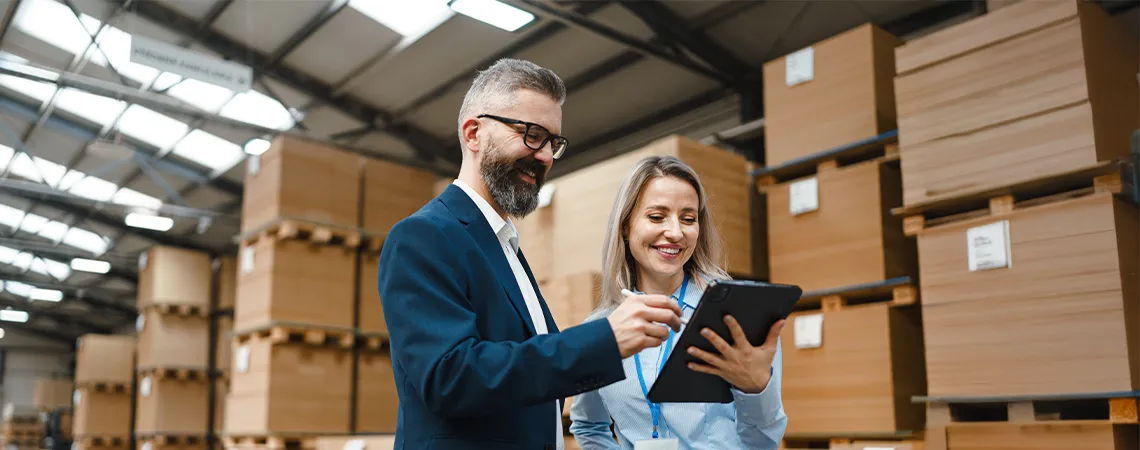 +1 289 719 0290
+1 289 719 0290- Progressive Cargo Inc-855 Matheson Blvd East, Unit 1B, Mississauga, ON, L4W 4L6

Every shipment tells a story—sometimes smooth, sometimes unpredictable. For a logistics company Toronto depends on, the stakes are high. Clients want transparency, speed, and precision, while global shipping lanes are crowded with risk. At Progressive Cargo, we’ve seen technology change the game before, but nothing quite like digital twins. This is no buzzword—it’s a framework reshaping how logistics operates from warehouse to port.
A digital twin is a live, data-driven replica of a physical process, asset, or system. Imagine a container ship, a distribution hub, or even an entire supply chain mapped into a digital environment. Every movement, delay, or risk factor gets mirrored in real time. That’s what makes it powerful—it’s not a static model, it evolves as the operation evolves.
For a logistics company Toronto clients trust, that means fewer surprises. The ability to simulate, predict, and respond before an issue becomes costly makes digital twin technology a strategic necessity.
The complexities of logistics leave little margin for error. Regulations change by region, cargo demands fluctuate, weather patterns interfere, and global supply chains are more interconnected than ever. With digital twins, we can:
The technology gives visibility not only to us but also to our clients, building a level of trust through transparency.
| Feature | Traditional Logistics | Digital Twin Logistics |
| Data Flow | Reactive, based on past records | Real-time, continuous updates |
| Risk Management | Issues addressed after the occurrence | Issues anticipated and prevented |
| Planning | Manual simulations, limited scenarios | Dynamic, automated scenario modeling |
| Visibility | Fragmented across systems | Unified, end-to-end view |
This comparison highlights why the shift isn’t optional. For Progressive Cargo, adopting digital twins means going from reactive management to proactive orchestration.
While digital twin adoption is gaining traction in Toronto, the impact stretches further. As a leading logistics company in Ontario, we’ve integrated digital twin platforms to help synchronize regional trucking routes with ocean shipments. The result? Reduced delays, optimized warehouse loads, and achieved measurable cost savings.
These transformations don’t happen overnight. They require robust data infrastructure, sensor deployment, and skilled teams interpreting results. But the payoff is unmistakable—greater reliability and resilience.
At Progressive Cargo, we’re already deploying digital twin strategies in:
Each application strengthens operational efficiency, reduces risk, and creates a stronger foundation for global trade.
Digital twin technology isn’t just about efficiency—it’s about resilience in a volatile industry. For Progressive Cargo, the journey continues with refining our models, scaling integration, and expanding into collaborative digital ecosystems where clients and partners share live operational insights.
The future of a logistics company Toronto businesses depend on won’t be decided by manual paperwork or delayed updates—it’ll be defined by predictive intelligence and connected systems. And as we expand our footprint, collaborating with ocean freight forwarders in Phoenix and across borders, digital twins will remain central to delivering cargo operations with confidence.
Q1. What role do digital twins play in logistics operations?
Digital twins create a live digital model of assets, processes, and shipments. This helps logistics providers predict delays, optimize routes, and track cargo conditions in real time for greater efficiency.
Q2. How does Progressive Cargo apply digital twin technology?
We integrate digital twins into container monitoring, route simulations, predictive maintenance, and warehouse flow modeling, ensuring shipments move seamlessly while minimizing risks and downtime.
Q3. Why is digital twin adoption important for logistics in Toronto?
For Toronto’s logistics sector, digital twins reduce congestion, anticipate risks, and enhance transparency. This proactive approach improves reliability and client confidence in global cargo movements.
Q4. Can digital twin technology benefit cross-border operations?
Yes. By providing unified, real-time data, digital twins support smooth coordination with international partners, including trucking routes, ports, and forwarders, reducing disruption in cross-border logistics.
Read more :-
More Useful Links :-
Value Added Logistics Services | Heavy Trucking Company | Liquid Tanker Trucking Company